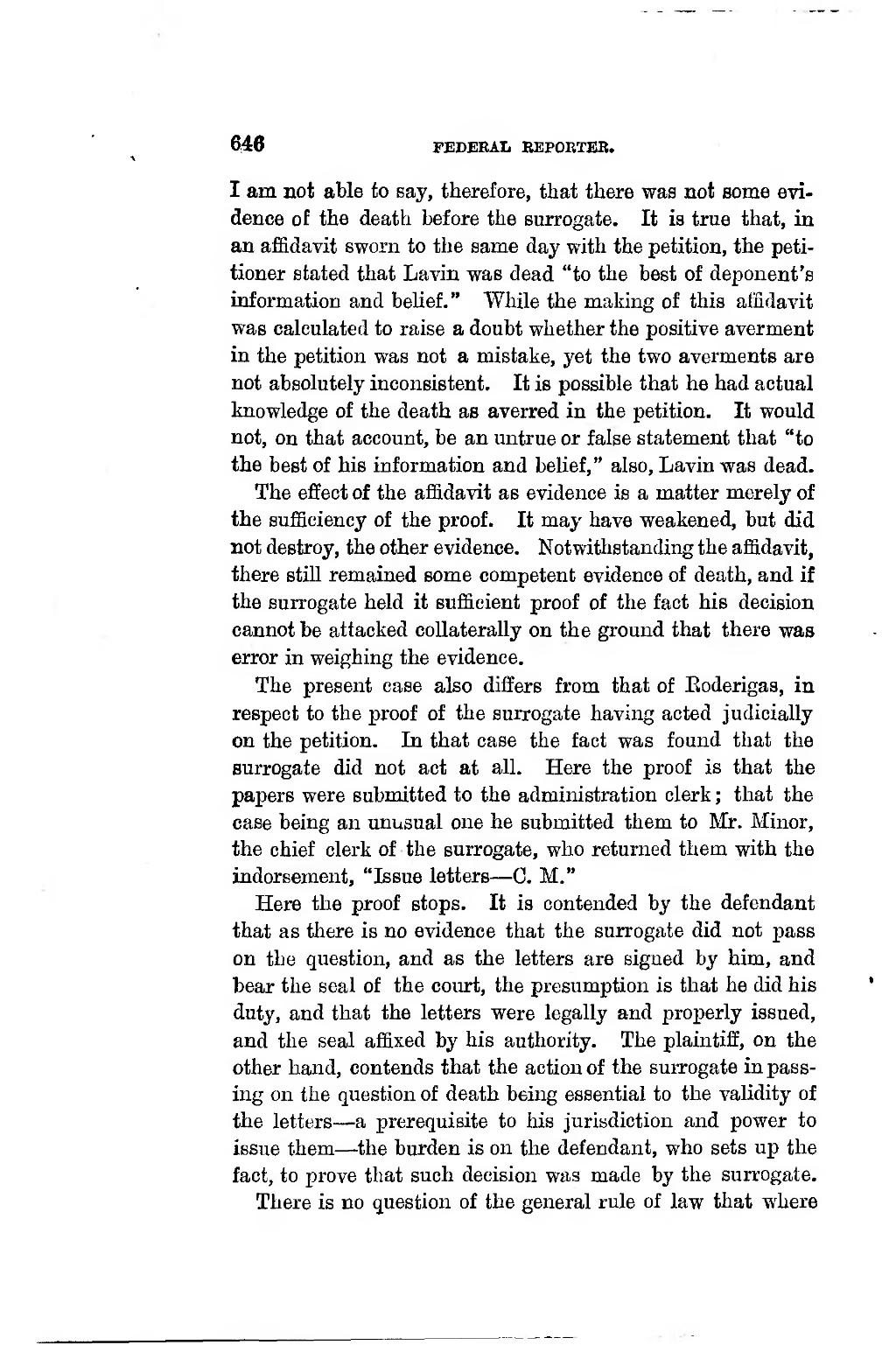6.46 FEDERAL REPORTER. �I am not able to say, therefore, that there was not some evi- dence of the death before the surrogate. It ia true that, in an affidavit sworn to the same day with the petition, the peti- tioner stated that Lavin was dead "to the best of deponent's information and belief." While the making of this atlidavit was caleulated to raise a doubt whether the positive averment in the petition was not a mistake, yet the two averments are not absolutely inconsistent. It is possible that he had actual knowledge of the death as averred in the petition. It would not, on that account, be an untrue or false statement that "to the best of bis information and belief," also, Lavin was dead. �The effect of the affidavit as evidence is a matter merely of the sufficiency of the proof. It may have weakened, but did not destroy, the other evidence. Notwithstanding the affidavit, there still remained some competent evidence of death, and if the surrogate held it sufficient proof of the fact bis decision cannot be attacked coUaterally on the ground that there was error in weighing the evidence. �The present case also differs from that of Eoderigas, in respect to the proof of the surrogate having acted judicially on the petition. In that case the faot was found that the surrogate did not act at ail. Here the proof is that the papers were submitted to the administration clerk ; that the case being an unusual one he submitted them to Mr. Minor, the chief clerk of the surrogate, who returned them with the indorsement, "Issue letters — C. M." �Here the proof stops. It is contended by the defendant that as there is no evidence that the surrogate did not pass on the question, and as the letters are signed by him, and bear the seal of the court, the presumption is that he did his duty, and that the letters were legaliy and properly issued, and the seal affixed by his authority. The plaintiiï, on the other hand, contends that the action of the surrogate in pass- ing on the question of death being essential to the validity of the letters — a prerequisite to his jurisdiction and power to issue them — the burden is on the defendant, who sets up the fact, to prove that such decision was made by the surrogate. �There is no question of the general rule of law that where ��� �
Page:Federal Reporter, 1st Series, Volume 1.djvu/654
This page needs to be proofread.
